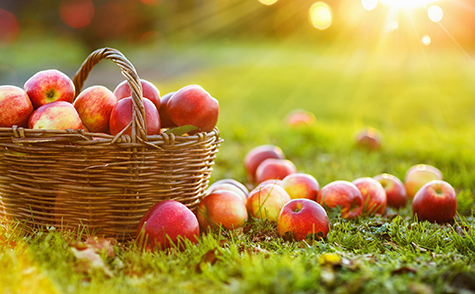Anti-Inflammatory Foods: the Top 10

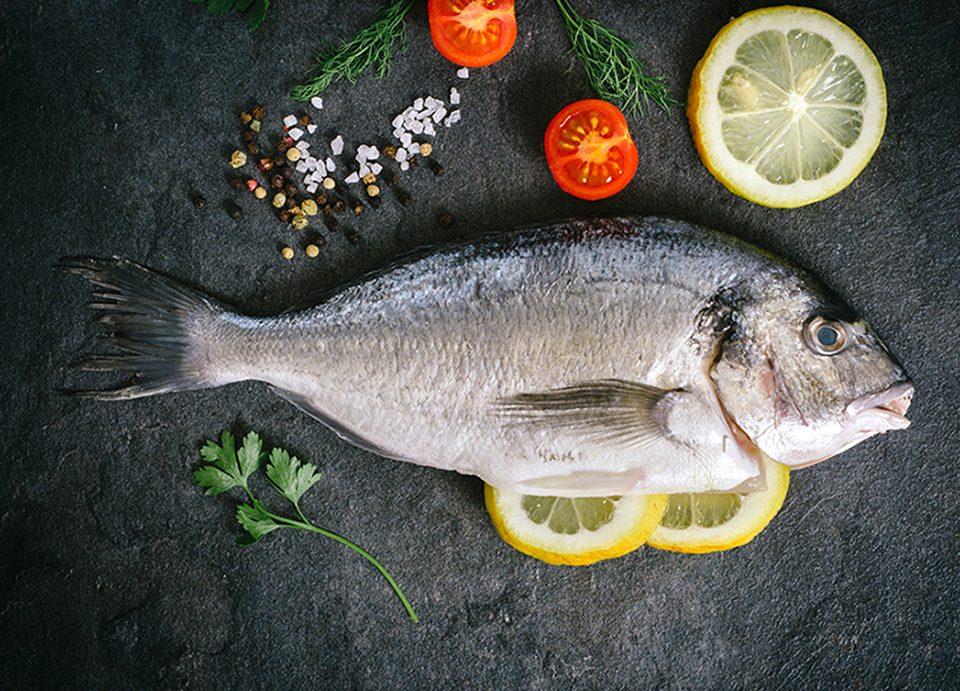
![]() There’s a connecting between inflammation and anti-inflammatory foods and lifestyle that’s important to your health. What you eat has a big influence. Inflammation is a natural response of the body in times of illness or stress. For example, if you cut your hand, you would experience pain, redness, swelling, and irritation to the area. This is inflammation that you can see – and it’s an important part of healing — but this response also happens internally and if left unchecked, can cause chronic health problems. Chronically elevated inflammation is associated with cardiovascular disease, Alzheimer’s and other cognitive issues, type 2 diabetes, autoimmune diseases, and even some cancers.
There’s a connecting between inflammation and anti-inflammatory foods and lifestyle that’s important to your health. What you eat has a big influence. Inflammation is a natural response of the body in times of illness or stress. For example, if you cut your hand, you would experience pain, redness, swelling, and irritation to the area. This is inflammation that you can see – and it’s an important part of healing — but this response also happens internally and if left unchecked, can cause chronic health problems. Chronically elevated inflammation is associated with cardiovascular disease, Alzheimer’s and other cognitive issues, type 2 diabetes, autoimmune diseases, and even some cancers.
The good news is that there are many foods that calm chronic inflammation in a variety of ways. From healthy fat like omega-3s to antioxidants, vitamins, and minerals, the following FoodTrients® foods contribute to cooling systemic inflammation in the body, help reduce the risk of chronic diseases (or help treat them) and promote health.
Apples
An apple a day is very good advice because they are nutrient-rich and are great for your heart. The fiber in apples contains a form called pectin which can contribute to decreased blood cholesterol levels. They’re also rich in potassium for blood pressure control. Their antioxidant capacity is abundant. Apples are known for both vitamin C and a flavonoid called quercetin which is linked in studies to anti-cancer effects and anti-inflammatory support.
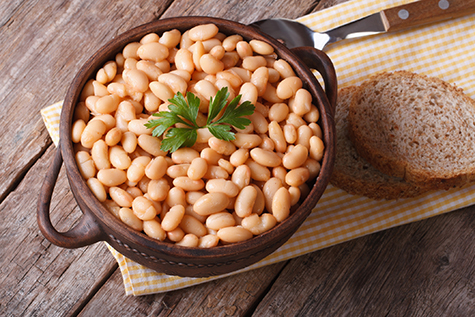 Beans
Beans
Packed with fiber and protein, beans have been shown in studies to reduce risk of cardiovascular disease and type 2 diabetes. What many people don’t realize is that beans are also full of unique antioxidants, vitamins, and minerals to lower inflammation. Whether you choose black beans, kidney beans, white beans, pinto beans, chickpeas, or even soy products, include beans in your diet regularly to reap the anti-inflammatory and nutritional benefits.
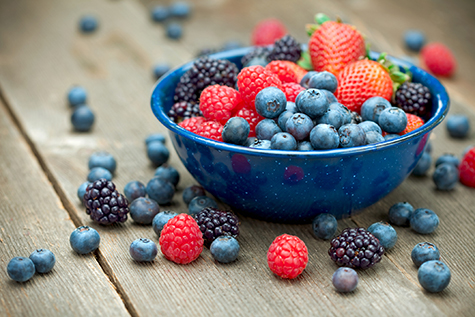 Berries
Berries
Choose strawberries, blueberries, blackberries, raspberries or a more exotic variety like acai because all these brightly colored berries are anti-inflammatory powerhouses. Like other top anti-inflammatory foods on the list, berries are rich in fiber and they also contain antioxidants. The blue, purple, and red colors of fruits and veggies often indicate a type of antioxidant called anthocyanins. In human studies, these compounds have been shown to reduce inflammation and are also linked to brain health, so be sure to include delicious berries in your diet daily if possible.
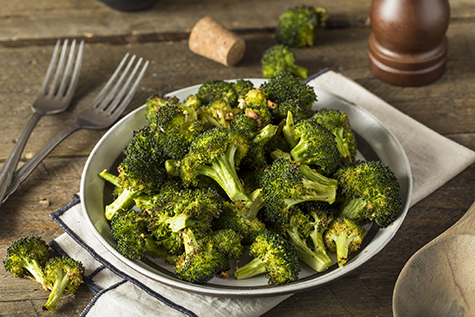 Broccoli
Broccoli
Cruciferous veggies like broccoli, cauliflower, kale, Brussels sprouts, and cabbage are powerful both for supporting detoxification and calming chronic inflammation. Compounds in these foods support the liver’s ability to get rid of toxic metabolites that need to exit the body. You’ve heard “eat your broccoli” before, but it couldn’t be truer for calming inflammation in the body. Include a serving of cruciferous vegetables several times per week if not daily to support your health.
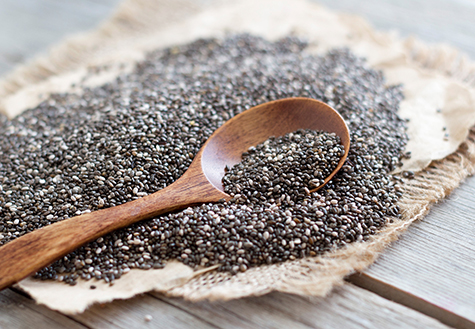 Chia seeds
Chia seeds
Love the consistency of tapioca or rice pudding? Chia seeds may be for you and bonus: they offer a huge nutritional benefit. With an outer shell that becomes gelatinous when exposed to liquid, chia seeds are functional food to include for an easy breakfast, dessert, or snack. These trendy seeds are rich in fiber, minerals like iron, and omega-3 fatty acids to reduce chronic inflammation and promote healthy digestion and elimination. Whip 1Tbs. of chia seeds into ¼ cup of dairy or non-dairy milk as your pudding base.
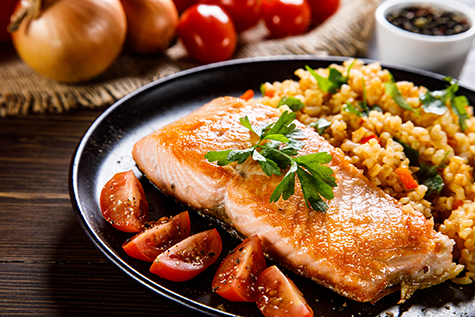 Fish
Fish
Cold-water fatty fish like salmon, halibut, sardines, mackerel, herring, anchovies, and trout are rich in protein, vitamins, minerals and anti-inflammatory omega-3 fats. In order for fish to survive in cold water climates, they carry a type of fat that has been shown also to support human health. A 3-ounce serving of this type of fish offers over 1500 mg of omega 3 fatty acids which is the amount that many people supplement with fish oil.
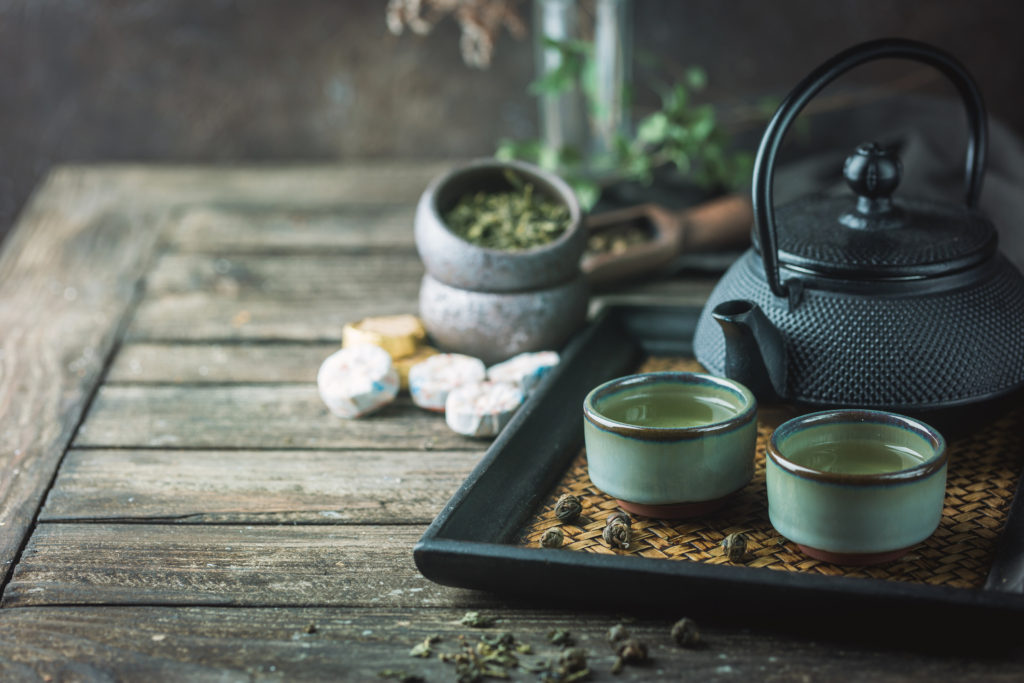 Green Tea
Green Tea
The most anti-inflammatory compound in green tea is a special antioxidant called epigallocatechin gallate (EGCG). Tea is hydrating – which is also part of supporting the body and calming inflammation – but the special part about it is the antioxidants from the tea leaves. Consider brewing a cup a day to gain the health benefits and if green tea alone is too strong, try a blend made with jasmine or mint.
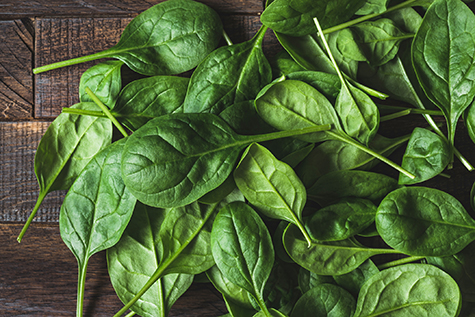 Spinach
Spinach
Dark leafy greens collectively offer iron, calcium, and an array of antioxidants like vitamin C, lutein, zeaxanthin and beta-carotene. Aside from commonly consumed spinach and lettuce, include other options like Swiss chard, kale, watercress, lettuce and collard greens. Include dark leafies in your diet daily to maximize benefits like decreased inflammation, reduced risk for certain cancers and cardiovascular disease.
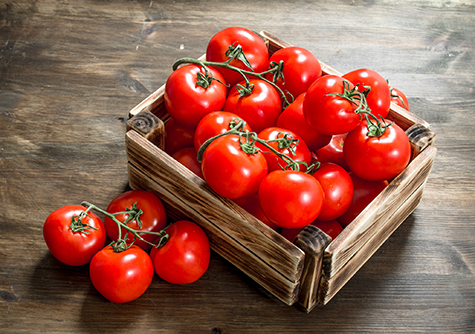 Tomatoes
Tomatoes
These little red fruits are full of health compounds like vitamins, minerals, and antioxidants that are specific to red colored foods. Famous for their lycopene, tomatoes have been shown to protect against certain cancers (especially prostate) and support heart health as well. They are low in sugar and high in nutrients so include both fresh and cooked tomatoes in a variety of ways from snacking on cherry tomatoes to using red sauce on veggies or pasta to gain their anti-inflammatory benefits.
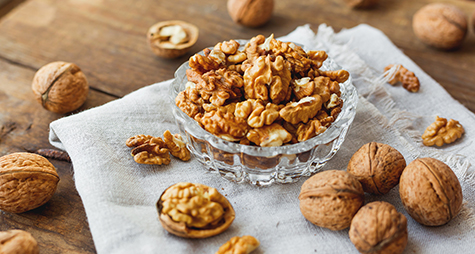 Walnuts
Walnuts
Higher in anti-inflammatory omega-3 fatty acids than other nuts like almonds, pistachios, or cashews, be sure to include walnuts as a snack. Like other nuts, you’ll still find anti-inflammatory antioxidants like vitamin E and lots of protein and fiber. Use caution with overconsumption of any nut or seed, however, because though they are a healthy whole food, they are rich in calories and fat so a small portion (1 oz.) goes a long way.
Anti-inflammatory foods are an important part of cooling the chronic inflammation process in the body. However, a healthy diet works best with other practices like daily physical activity, good quality and quantity of sleep, stress management, and avoiding inflammatory habits like smoking.
Learn more: How You Can Reduce Chronic Inflammation
Resources
Lu CC, Yen GC. Antioxidative and anti-inflammatory activity of functional foods. Current Opinion in Food Science. 2015 Apr 1;2:1-8.
Al-Khayri JM, Sahana GR, Nagella P, Joseph BV, Alessa FM, Al-Mssallem MQ. Flavonoids as potential anti-inflammatory molecules: A review. Molecules. 2022 May 2;27(9):2901.
Moreno-Garcia KL, Antunes-Ricardo M, Martínez-Ávila M, Milán-Carrillo J, Guajardo-Flores D. Evaluation of the antioxidant, anti-inflammatory and antihyperglycemic activities of black bean (Phaseolus vulgaris L.) by-product extracts obtained by supercritical CO2. The Journal of Supercritical Fluids. 2022 Apr 1;183:105560.
Zhu F, Du B, Xu B. Anti-inflammatory effects of phytochemicals from fruits, vegetables, and food legumes: A review. Critical reviews in food science and nutrition. 2018 May 24;58(8):1260-70.
 Anti-Inflammatory
Anti-Inflammatory
Anti-Inflammatory Foods: The Top 10
 Antioxidants
Antioxidants
Antioxidants Help Slow Down Premature Aging
 Beauty
Beauty
Beauty Is So Much More Than Skin Deep
 Detox
Detox
Which Foods Are Best To Help You Detox?
 Disease Prevention
Disease Prevention
Meet the Best Foods for Disease Prevention
 Gut health
Gut health
Good Gut Health Helps Prevent Diseases – FoodTrients
 Immunity Booster
Immunity Booster
How To Support Your Immune System Naturally
 Mind
Mind
How To Feed Your Brain and Keep Sharp
![]()
